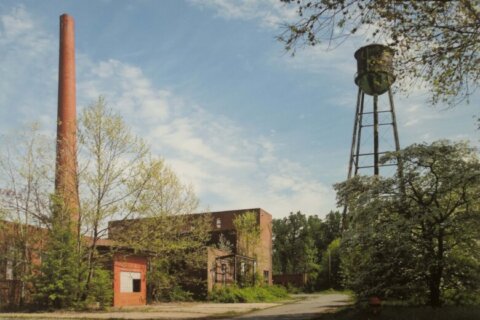Prince George’s County, Maryland is no exception to the racial reckoning occurring in many parts of the country in recent years has led to a rethinking of whom buildings, schools, and roads are named after, and how those decisions are made.
A report issued by the county’s Responsible Legacy Task Force this week pointed out that the process is part of the problem — there is no uniform standard.
In a presentation given to the County Council on Tuesday, Hyattsville City Council member Joseph Solomon, the chairman of the task force, outlined a potential path for considering whether or how to adopt recommendations in the future.
The panel tried to come up with a way to quantitatively measure whether or not a public road or building of some kind is appropriately named.
“There’s a rubric that analyzes that person’s honorable and dishonorable conduct,” said Isabel Williams, who was a liaison between the panel and the county council. “Being a slaveholder was an automatic disqualifier.” So were ties to the Confederacy.
Other factors to consider include impact, cost and administrative burden, as well as whether the person proposing the change has the standing to do so.
Test cases
The report and presentation used three test cases as examples to show how the scoring system would work and what the potential outcomes would be. The first example was Michelle Obama, who Williams said would make an “very admirable submission.”
The panel also looked at Indian Head Highway, which got its name from its terminus at what was once known as Indian Headlands, a coastal landform on the Potomac River. Since it’s multi-jurisdictional, ending in Charles County and the town of Indian Head (not to mention it’s a state highway, but this was just an example), it would not qualify for renaming at the county level.
The last example was former Gov. Oden Bowie, who lived in the 1800s. He had slaves on his plantation, even though he was against secession by the South. His term as governor came after the Civil War, and some county buildings run along Gov. Oden Bowie Drive in Upper Marlboro.
All of the offensive conduct he’s judged by came through a look at him through a modern context, while his honorable conduct scored in both historical and modern contexts.
“Sometimes you have names that are well known but will not come through the process with the support to maintain that name,” said Solomon, who stressed the panel was only using Bowie’s name as an example, not a recommendation.
In addition, the naming of schools is handled by the school system, not the county council.
After the presentation, council member Dannielle Glaros pointed out that her street in Riverdale was originally named after a Confederate soldier, though she said it was renamed after a Union general decades ago. At-large council member Mel Franklin said the report highlights changes that need to come from above the county level.
“It’s unfortunate that we don’t have as much control over the issue as we should,” he lamented. “Our residents look to us when we want things changed, and oftentimes we have to say to them ‘We don’t control what names the county streets have,’ and we get this odd look, like ‘What do you mean you don’t control what the county streets are named when you’re the county council?’
“Well that’s state law, we don’t get that authority,” said Franklin. “We need the authority to be able to act on these kinds of matters” beyond county buildings.
While some policies can be implemented into law at the county level, ultimately the report is non-binding, issuing recommendations to help guide future decisions.
“The next steps are more at the administrative level for each of the agencies that have naming authority now,” said council member Todd Turner, who was on the panel too.
“Even if we were to get applications in the future, if we adopt this process, it is going to be subjective — there really is no way about that. We did try to do a scoring system, a point system … but at the end of the day whoever the person or the entity or the agency that’s making that determination – if they completely adopt this – will have to justify why something should be renamed or why something should not be.”








